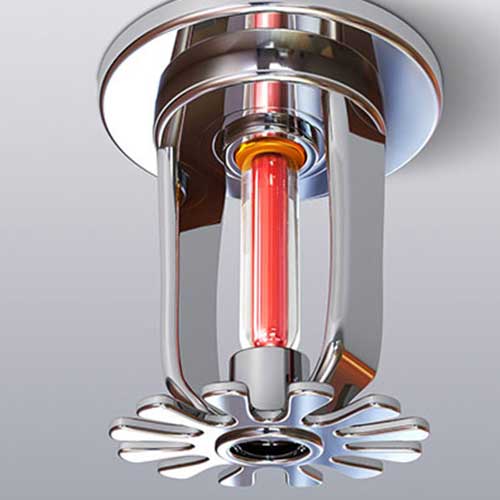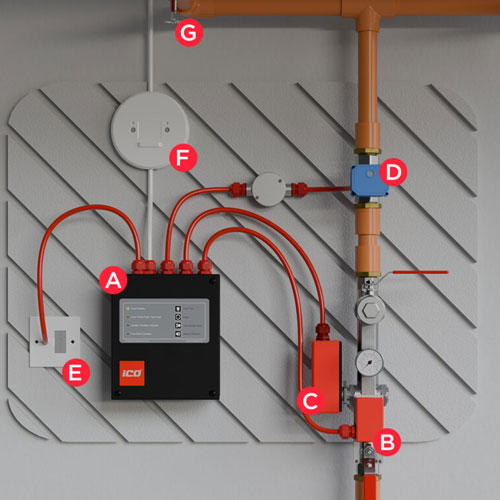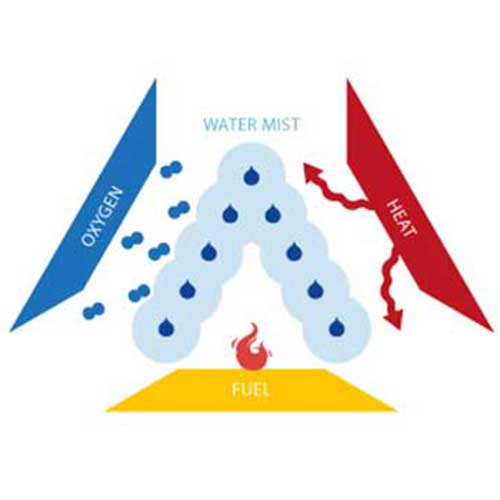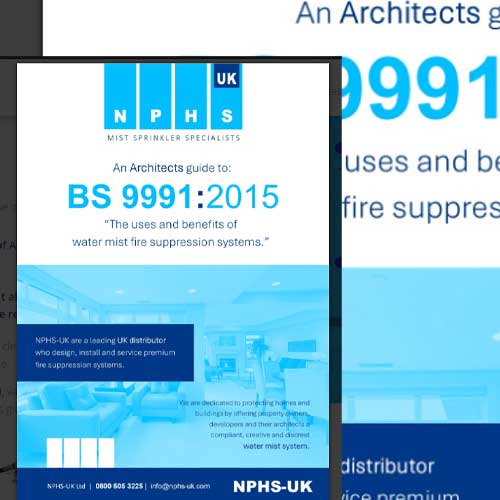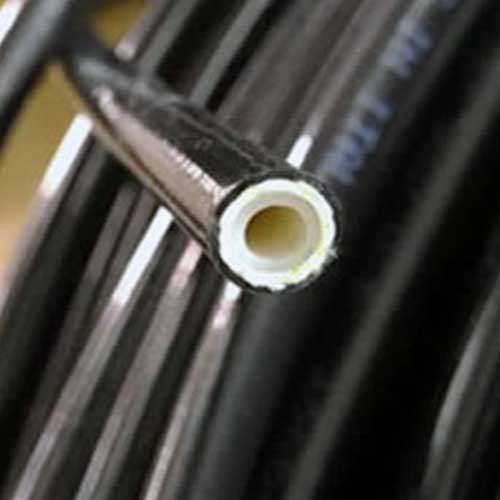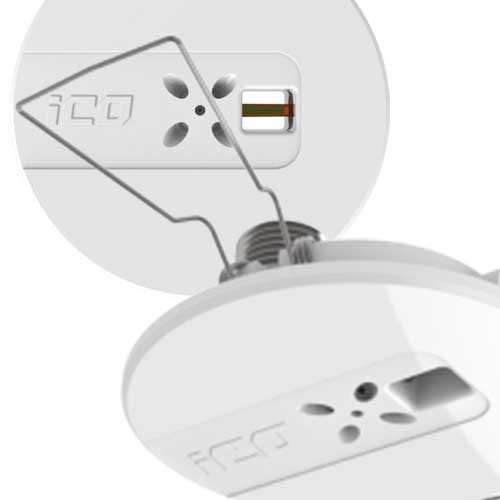Ceasefire: Manufacturers — NPHS-UK: Installers
Get a Quote
Get Your Quote
If you have any questions about fire suppression in the commercial kitchen, do not hesitate to contact us direct.
NPHS-UK are are the leading installers of effective Fire Suppression Systems throughout the UK.

Fire Safety in the Design, Management and Use of Residential Buildings.
The BS 9991 covers the the application of Automatic Fire Suppression Systems in residential and domestic buildings.
BS 9991 provides a level of flexibility that allows the fire protection measures and the associated risks to be assessed to enable reasonable practical solutions to be designed.
This document has been created to provide a clearer understanding of BS 9991: 2024 and the design freedoms that can be achieved within its scope.
Where permissible within the British Standard, variations on the fire safety provisions by installation of an AWFSS, the specific systems and categories given in Table 2 should be used.
With the release of BS 9991:2024, there’s been growing discussion around the role of water mist fire suppression systems in properties.
While the revised standard focuses solely on sprinkler systems, it does not prohibit the use of alternative fixed firefighting systems like water mist systems—especially when they’re designed and installed to rigorous standards.
A traditional fire suppression sprinkler system has been commonly used in residential properties since ‘fire suppression’ was first considered, it’s time now for a new chapter.
A traditional fire sprinkler head is the component of a fire sprinkler system that discharges water when the effects of a fire have been detected, such as when a predetermined temperature has been exceeded.
Fire sprinklers are extensively used worldwide, with over 40 million sprinkler heads fitted each year. It is important to note this system saves countless lives and is regarded as a key fire suppression system.
However, since Water Mists’ initial stage development in the year 2000, there is now a keen interest in furthering the application of high pressure water mist technology as a credited fire protection system throughout the residential and domestic sector.
We walk you through some of a water mists’ key beneficial areas:
Our Water Mist Fire Suppression System allows Architects to further explore modern design options that support the BS9991 Standard:
Regard for compartmentalisation and protection of fire escape routes need not inhibit an Architects desire to create open, flexible living space.
5.2.1.2. Multi-basement buildings
For dwellings with multiple floors below ground level, a protected stairway and an AWFSS, 9m metres should not be exceeded for from the foot of the protected stair to any habitable room.
6.3(c) Dwelling houses with one or more storey greater than 4.5m in height (three storeys)
Open plan arrangements on the ground floor can be achieved on condition that AWFSS are installed throughout the property in addition to a fire rated partition and door at first floor level.
6.4.(b) Dwelling houses with one or more storey greater than 7.5m in height (four storeys)
A second, separate protected stairwell is not required if AWFSS are fitted throughout.
6.5.2. Loft conversions
Open plan arrangements on the ground floor are permissible should AWFSS be installed throughout, in conjunction with a fire resisting partition and door at first floor level.
9.1(d) Internal Planning of Flats and Maisonettes
Flats or maisonettes with an open plan arrangement and more than one floor should have a protected stairway and AWFSS fitted. This allows escape to the shared external entrance.
9.3(b) Provision of inner rooms in flats not more than 4.5 m in height.
Inner rooms are not suggested unless the use of an AWFSS is utilised throughout the entire building, along with a grade D LD1 fire detection and fire alarm system in accordance with BS 5839-6:2013.
9.4.2(a) Extended travel distances within an open-plan flat.
Flats more than 4.5m above ground level that are entered on the same level can increase total travel distances to the entrances from 9m to 20m with the use of an AWFSS throughout the entire building, along with an LD1 fire detection and fire alarm system in accordance with BS 5839-6:2013.
9.5.2(d) Maisonettes with floors greater than 4.5m
No requirement to provide a separate means of escape if the maisonette has a protected stairwell and a fully fitted AWFSS.
9.7 Open Plan Layouts
Open planned flats are permissible with a fully fitted AWFSS.
11.1 Flats where occupants are not capable of independent evacuation
It is possible to use provisions of an AWFSS where the use of the building is required for people not capable of independent evacuation (excluding common corridors and stairways.)
It is further possible to protect common areas (excluding common corridors and stairways,) using provisions of an AWFSS where the use of the building is required for people not capable of independent evacuation.
19.1.2 Vehicular Access
Access can be increased significantly if an AWFSS is installed and where the arrival time for the fire service is not more than ten minutes:
– 90m for houses less than 4.5m in height.
– 75m for houses/flats not more than one floor above 4.5m.
23.1 Extra care housing
Extra care housing must be fitted throughout with an AWFSS.
23.2 Travel distances
If an AWFSS is fitted throughout a block of flats, then travel distances can be doubled on common escape from 7.5m to 15m and 30m to 60m
29.4.2 Boundary Distance
Boundary distances can be reduced by 50% with a fitted AWFSS.
Okay, so you have my attention…why should I use your water mist system rather than a traditional sprinkler system?
Doesn’t all go off at once
Despite what the movies tell you, water mist nozzles (like sprinklers) operate independently.
Only nozzles close to the heat from the fire will activate. Therefore, a fire in a living room will only activate the mist nozzles in that room.
Nozzles are discreet
Our water mist nozzles are the most discreet domestic nozzles on the market and are hardly visible. Our nozzles sit flush at just 3mm and look like a white disc.
Colour matching to an interior colour scheme is possible where required and stainless steel is also possible.
When our mist system is engineered into a project, the architect has more scope to change the use of space, which in turn changes the nature of the interior, creating unique designs.
Nozzles have a low failure rate
The odds are more than 1 in 16 million against accidental discharge because of a manufacturing defect and the nozzles we use are not easy to tamper with once fitted.
During manufacture, our nozzles are rigorously tested.
Activates with heat
Smoke from cooking or smokers’ materials will not activate a system.
Works differently to smoke detectors
Smoke detectors provide valuable warning time but which can alert people of smoke but does not suppress a growing fire.
Detectors must be routinely maintained and be in good working order to help save lives but can’t help those who are unable to remove themselves from the environment.
It is worrying fact that 90% of children sleep through smoke alarms. Smoke is toxic and kills. Water mist inhibits the spread of smoke and saves lives.
Ensure minimum damage
Water mist nozzles operate at the early stages of a fire and only discharge 10-20% of the amount of traditional water sprinklers. In all cases this is sufficient to completely extinguish the beginnings of a fire and in turn minimises the damage to a household’s material possessions.
Water mist systems also minimises damage from smoke and fire. To control a fire which has developed unabated, the fire service will be obliged to discharge far more water (100 to 200 times the volume.)
Very competitive on price
Our pricing model for the design, install and maintenance of our water mist systems are highly competitive.
If incorporated into old buildings, our flexible hoses and easy install (without the need for large water tanks) our water mist systems save remain highly competitive.
NPHS-UK deliver further options for reducing costs on larger development projects.
Scroll through our supporting links:
